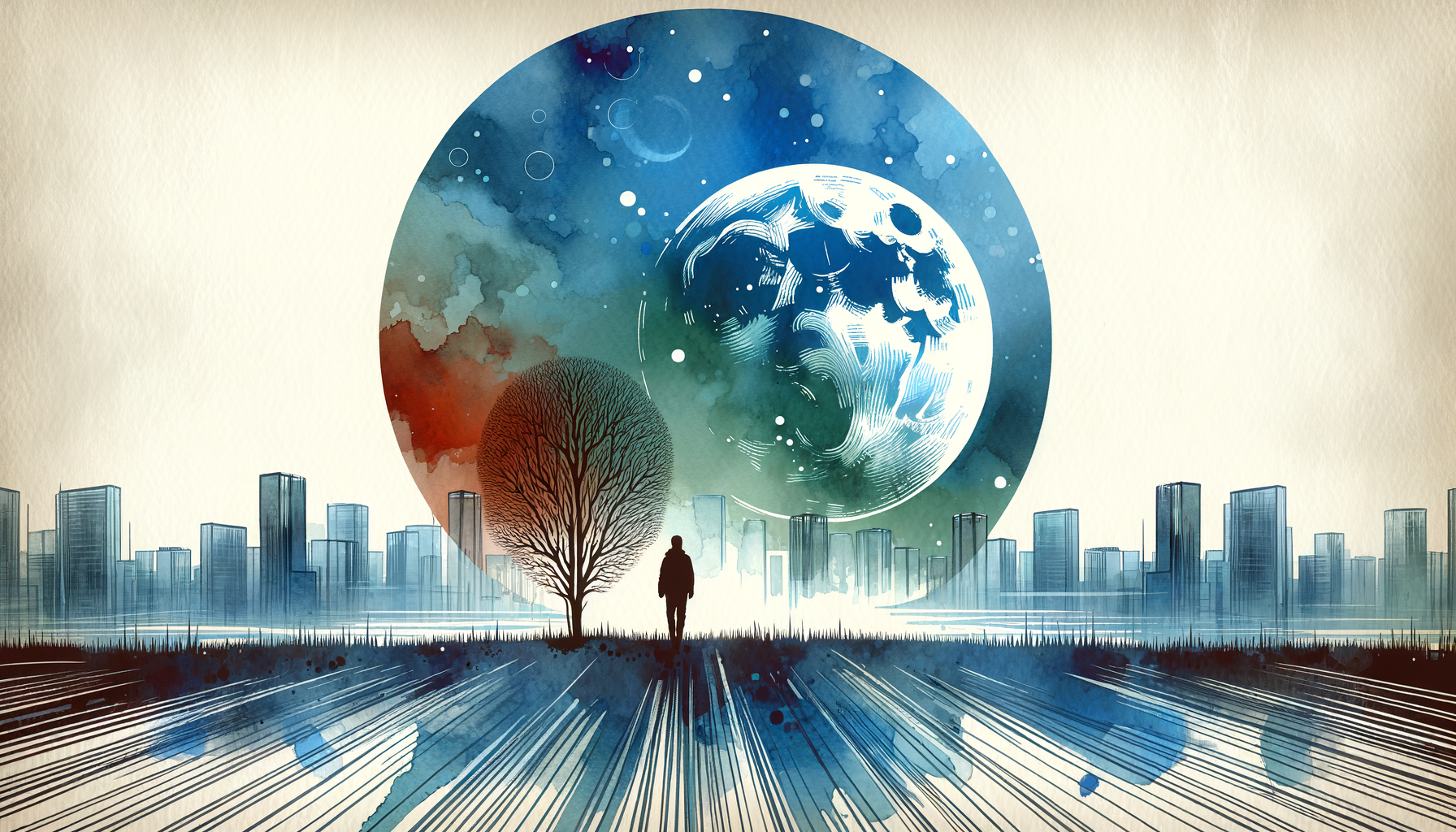What People Get Wrong About My Job
If I had a dollar for every time someone assumed that being a writer means I spend my days lounging seaside in a boho-chic hammock, nibbling on organic blueberries, and waxing poetic about the meaning of life, I might actually afford that elusive beachfront property in La Jolla. Spoiler: the life of a professional writer is significantly less "Instagrammable" than you’d think. It’s a little more chaotic, plopped somewhere between creative inspiration and ferocious Googling about how to fit “zeitgeist” naturally into a sentence.
I love what I do, don’t get me wrong. But in case you were starting to build this romanticized, soft-focus Pinterest board about my career, let me gently shatter those delusions—in the kindest way possible, of course.
Myth #1: Writers Are Always Inspired
Ah, inspiration—such a seductive myth. To some, being a writer means waking up each morning, pouring a cup of coffee that somehow always stays at the perfect temperature, and effortlessly typing out Pulitzer-level prose like you’ve been touched by some divine literary muse.
In reality? Half the time, I’m staring at a blank Google Doc, wondering why “How to Start Your Article” remains one of Google's most-searched phrases. (Guilty as charged.) Inspiration doesn’t come to writers like waves lapping peacefully onto the shore. It’s more like a rogue tide that shows up when it pleases—and you’d better be ready with a metaphorical surfboard when it does.
Take it from someone who’s tried everything from listening to Jack Johnson on repeat to going for a jog along the cliffs to summon creativity. Real writing often looks less like "Eureka moments" and more like muttering to my dog, “Is this relatable, or am I just nuts?”
Reality Check: When inspiration doesn’t show up, deadlines still do. Writers don’t lounge around waiting to feel “ready.” We write anyway, whether we're pumped or scraping ideas off the metaphorical ocean floor.
Myth #2: Writers Only Write When They Feel Like It
Closely tied to the “inspiration” lie is the belief that writing is only worthwhile when you’re in the mood for it. “Oh, if I had your job, I’d only work during golden hour,” people have said to me, usually while clutching decaf oat lattes they paid $9 for.
Nice as that sounds, golden hour doesn’t pay the rent. Writing professionally means showing up daily, squeezing out sentences that sometimes feel more clunky than poetic. It's not a spontaneous romance; it’s a long-term commitment.
For example, my editor (hi, Sarah—love you) has given me the enviable task of crafting everything from tidal pool soliloquies to how-to relationship advice. Deadlines don’t wait for me to feel “inspired,” especially when an entire audience is hungry for relatable yet lyrical content about love. Pro tip: nothing reignites focus faster than realizing your piece is due tomorrow, and you’ve spent the past hour Googling how dolphins flirt (yes, it’s a thing—whistle codes).
Reality Check: Writers work whether the writing flows like a gentle stream or pours out in reluctant little drips. Mood is optional; discipline is non-negotiable.
Myth #3: Writers Have Cracked the Meaning of Life
“Oh, you must be so wise,” some people tell me, leaning in with stars in their eyes. Sure, I’m great with words, but do I have life all figured out? Let me just check my chaotic Post-it-covered desk. Nope.
Here’s the thing: writing forces you to think deeply. I’ve tackled my fair share of relationship questions, self-improvement topics, and “Does this make me sound well-adjusted or mildly unhinged?” essays. But just because I write about relationships, for example, doesn’t mean I’ve mastered them. I’ve ghosted and been ghosted (hi, Derek from 2015—hope your band’s doing great). I’ve fumbled through awkward first dates and once Googled, “Can liking pineapple on pizza be a relationship dealbreaker?”
Writing about life doesn’t mean you’ve solved it—it just means you’ve spent a lot of time analyzing it. It’s less “I have the answers” and more “Can we figure this out together?”
Reality Check: Writers aren’t all-knowing sages; we’re just really good at asking questions and spinning them into prose.
Myth #4: Writing Is All Solitude and No Fun
Whenever I tell people I’m a writer, their faces inevitably soften into this dreamy expression, like I spend my days sitting alone in some moody Parisian café, swaddled in a turtleneck, untangling life’s dramatic twists and turns. While romantic, the truth is much weirder and definitely more fun.
My job requires connection—both to the subject I’m writing about and to you, the reader (hi, yes, it’s me again). For example, when I write about relationships, I’m digging through my own experiences, your inboxed questions, or hilarious anecdotes my friends have shared after three margaritas. Writing is less a solitary art and more about weaving together others’ truths with your own to create something that feels universally relatable.
And let’s not forget the laugh-worthy moments of research. Like the time I fell into a Wikipedia rabbit hole about “unconventional flirting techniques,” only to realize how many of them I’ve unknowingly botched (air-winking shouldn’t be a thing).
Reality Check: Writing isn’t lonely; it’s full of connection, collaboration, and the occasional self-inflicted cringe.
Myth #5: Writers Only Write for the Money
Final, heartbreaking misconception: that us writers are sitting back Scrooge McDuck-style, swan-diving into piles of cash for every word we pen. (Cue hysterical laughter from writers everywhere.)
While I’m endlessly grateful to do what I love for a living, writing isn’t the fastest or flashiest way to become rich. Does publishing an article feel amazing? Always. Does it mean I’m splurging on some posh La Jolla boutique afterwards? Sadly… no. Writing can pay the bills, but most people I know do this because they're genuinely obsessed with storytelling, not because it's a ticket to untold glamour.
For me, writing about relationships feels like tide-pooling—it’s unpredictable, intriguing, and every now and then, you uncover something truly breathtaking. That “aha” moment when a reader messages me saying, “That piece put into words what I didn’t know how to say”—that’s the kind of rich I’m here for.
Reality Check: If you’re in it for the money, you’re better off selling organic surfboard wax (or so I’ve heard). Writers are in it for the stories, the connections, and the joy of saying something that resonates.
The Takeaway: Writing Is Messy, Magical, and Worth It
The life of a writer isn’t some breezy indie-film montage set along sun-drenched cliffs. It’s a rollercoaster, equal parts deadline anxiety and “aha” moments of clarity. We’re not always inspired, nor do we have life all figured out. But there’s something deeply satisfying about finding the right words to make a topic sing—whether it’s dating, breakups, or the weird ways life surprises you.
So the next time you picture writers as moody geniuses with endless free time and serene bank accounts, remember this: we’re humans too, paddling frantically beneath the surface while trying to look cool above it. And honestly? That’s what makes the whole job fun, meaningful—even magical.




















